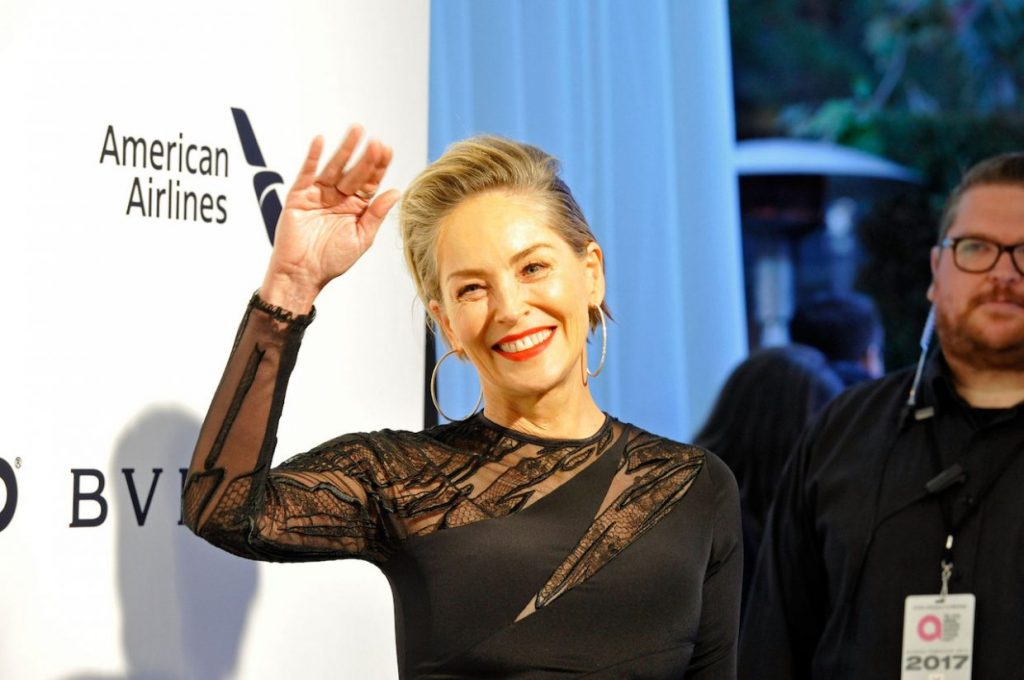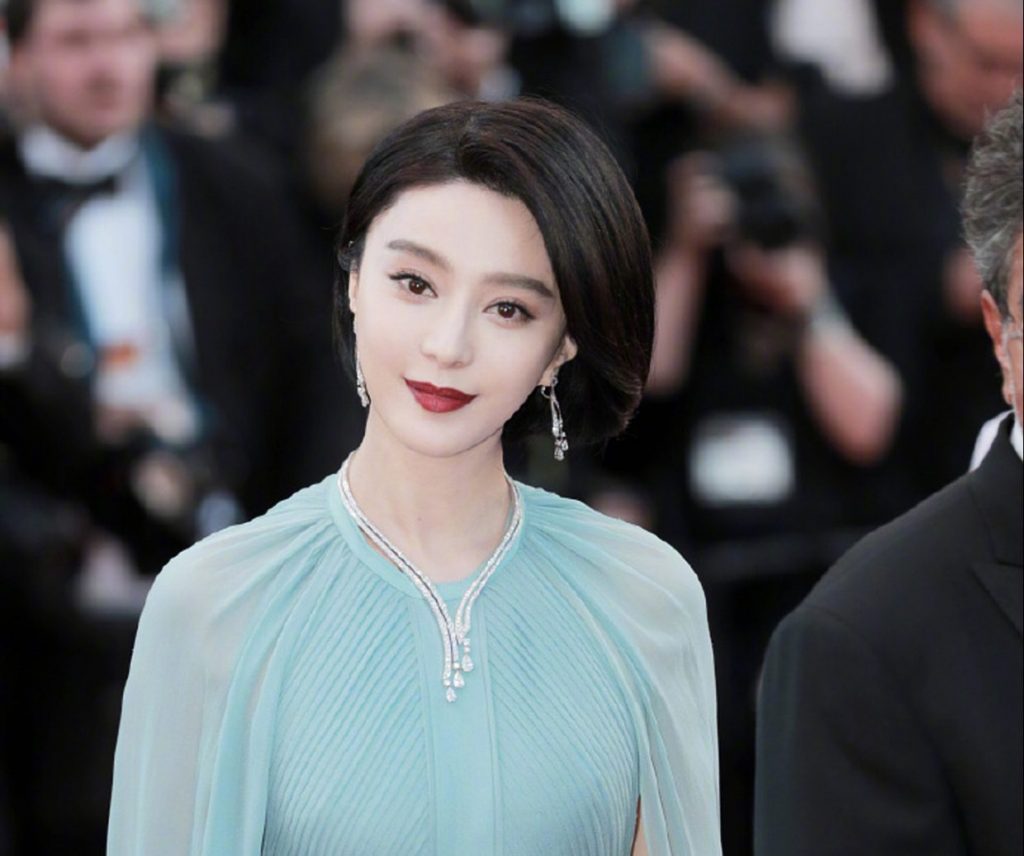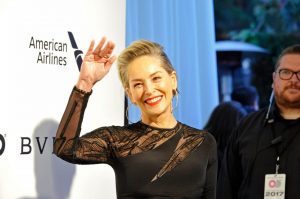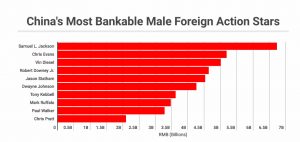CFI take: “Little Fresh Meat,” a group of young stars known at present more for their looks than acting talent, have huge and enthusiastic fan bases, meaning filmmakers must at least consider them for films seeking commercial success.
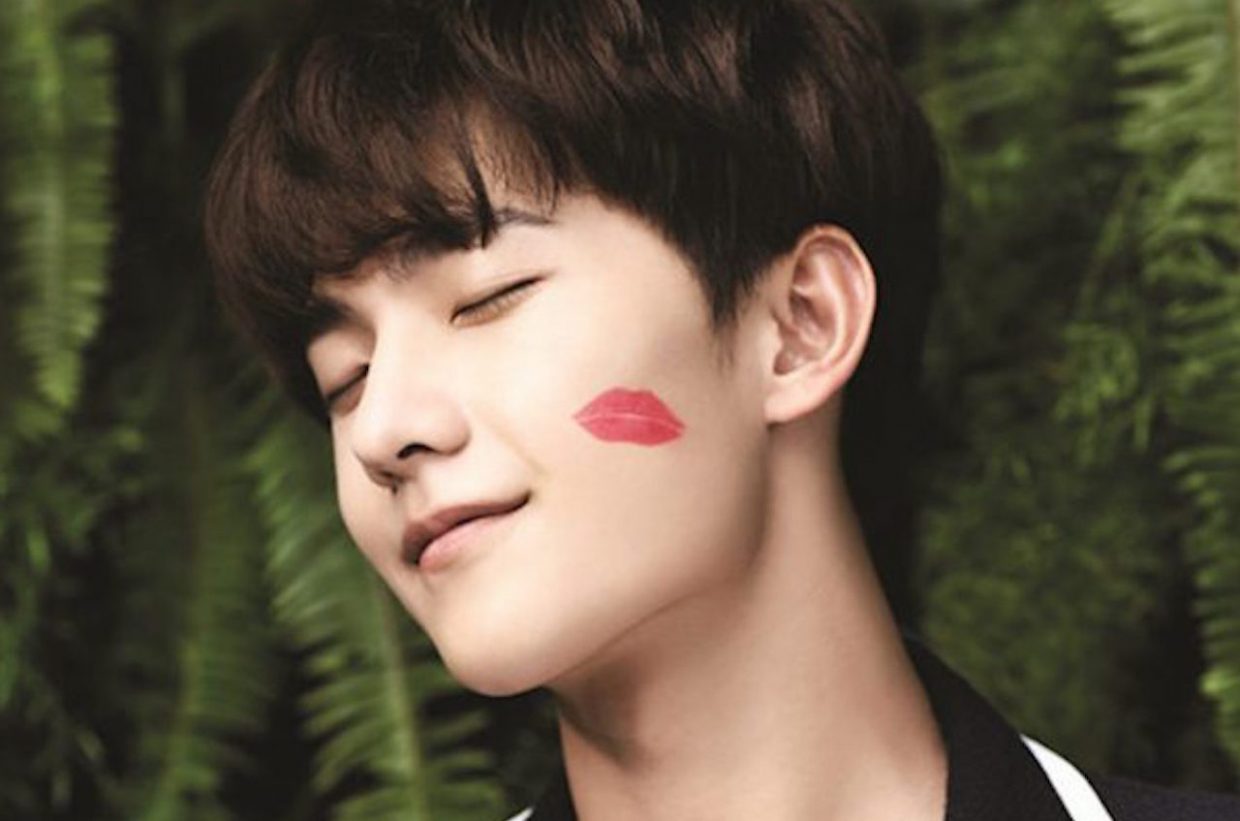
Yang Yang with a lipstick mark for a Guerlain campaign. Image via Guerlain’s official Weibo account.
L’Occitane Experienced Double-Digit Growth in China in 2017
At the 2017 annual result briefing for French cosmetics company L’Occitane on June 12, Andre Hoffmann, the president of the company’s Asia-Pacific region, said the company experienced double-digit growth in China in 2017, with net sales up 11 percent from the prior year. Their Tmall sales saw a staggering 49 percent gain and drove the company’s overall excellent performance in the country.
“This is linked to consumer confidence in China,” said Hoffmann, “and also to a highly effective advertising campaign with a local celebrity.”
By ‘local celebrity,’ Hoffmann was referring to Joker Xue, a male celebrity who was the face of ad campaigns geared toward women. While it may sound odd to Westerners, Xue is among many Xiao Xianrou—or “Little Fresh Meat,” as they’re also known—helping brands peddle products to women. And they’re steadily gaining ground in China.
The term Little Fresh Meat, in China, refers to young good-looking men who are considered more beautiful than women. They are tall with flawless skin and facial features. These young men signify a new kind of male beauty standard and have become the object of the female gaze.
The logic behind selecting men to tout products geared to women in Asia is partly cultural and partly a ploy to leverage their sex appeal.
“There is an old saying in Chinese that women dress for the one they are trying to please,” said Yufei Li, a former Business Development staffer at Xiu.com, one of China’s leading e-commerce sites. “Men know women the best. If a good-looking male celebrity endorses a female brand, it means he verifies that that is attractive.”
The standards of male beauty are also different in China than they are in the West. “It’s okay for a man to use more skincare products and to look more feminine in China,” said Jessica Zhang, an assistant manager in e-commerce business analytics at L’Oreal USA. “Beauty brands [in China] should target a wider range of consumers, not just one gender or the other.”
Forbes China first ranked the top 20 hottest “Little Fresh Meat” celebrities back in 2014, detailing their career and the staggering income they derive from the fan economy.
L’Occitane had invited singer and actor Joker Xue to be the first brand ambassador in China in October last year, covering Singles’ Day and Valentine’s Day. During Singles’ Day, according to L’Occitane’s e-commerce operations manager in China, sales growth from the company’s online flagship store increased more than 70 percent.
Riding on the wave of that positive experience, on May 22 this year, L’Occitane named former pop idol Luhan its official brand ambassador and rolled out a campaign with the star for its Cherry Blossom body and hand care collection. The same day the announcement was made, the company also made a limited edition travel package available on Tmall. All 20,000 of the kits, according to Sina Fashion, were sold out in 2 minutes.
Luhan, also known as the “Chinese Justin Bieber,” rose to fame as a member of the Korean-Chinese boy band EXO. After his successful stint as a pop idol, he transitioned to acting and hasn’t done too poorly in that field either. He has starred in several box office hits such as Time Raiders and 20 Once Again. With a yearly earning of 28.5 million Yuan (US$4.2 million), he was named, by Forbes, the 37th highest-earning celebrity in China.
Lancôme and L’Oreal Paris took note of Luhan’s popularity and have already chosen him as their brand Ambassador. And other brands have experienced similar success with Little Fresh Meat as well. An ad for Guerlain lipstick features actor Yang Yang looking dreamy with a bright red lipstick mark on his cheek (he became the brand ambassador in March 2016). The lipstick, which was named after him, frequently sold out after he became the brand ambassador.
Actor Wang Kai, who was made famous after appearing in Ode to Joy, China’s Sex and the City, touted Estée Lauder eye cream, which went on, according to Chinese media, to achieve “record sales.” (Kai became the brand ambassador in August 2016.) A WeChat Moments ad by SK-II featuring Wallace Huo increased the brand’s sales on JD.com sixfold in one day.
While it is gaining traction in China, there are examples of European brands using men to target women, according to Louis Houdart, the founder and CEO of branding agency Creative Capital. “One iconic example,” said Houdart, “was Chanel’s use of Brad Pitt to promote their women’s perfume in 2012.” But, he said that it’s a lot more prevalent in China and Korea.
“Little Fresh Meat” are a powerful weapon when paired with a digital campaign for boosting sales among the younger generations, according to Liz Flora, the editor of Asia-Pacific research at the digital intelligence company L2, because younger consumers are more tech-savvy.
For L’Occitane, the move was a little unorthodox given its history. “The brand had both a very strong concept and history, as well as an apparent reluctance to use celebrities,” said Houdart. “They were probably facing some pressure from more mass-market brands like Innisfree or more premium brands. It is, therefore, a very efficient shortcut to boost sales and visibility.”
And while their popularity can be a powerful tool, it can also be a setback. “Many celebrities do not sign exclusively with brands and change too often, which is financial, of course, very good for the celebrity,” said Houdart. “But [it does] not create brand loyalty as the fans will follow the celebrity rather than stick to the brand.”
— This article originally appeared on Jing Daily.


